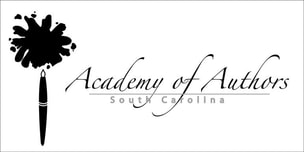Harry Scott Ashmore
Harry Scott Ashmore was born on July 28, 1916, in Greenville, SC. He attended Greenville High School before earning a degree in general science at Clemson Agricultural College in 1937. He first received experience in professional writing as the editor of the student newspaper in high school and college. After graduating from Clemson, he became a reporter first for the Greenville Piedmont and then the Greenville News. In 1941, he was chosen for a Nieman Fellowship in Journalism at Harvard University, which he had to leave unfinished when the United States entered World War II that December. After the war ended, he served as the editorial writer at the Charlotte News in NC, a post he held until 1947 when he also became the editorial writer as well as executive editor at the Arkansas Gazette in Little Rock.
During his time on the Gazette, Ashmore became widely recognized, especially for his work concerning civil rights. He wrote his first of eleven books, The Negro and the Schools, in 1954 as a study of segregated education in the South. One year later, this book was used as a key source during the drafting of civil rights and education laws. In response to the 1957 desegregation crisis at Little Rock Central High School, Ashmore wrote a series of editorials in support of integration, which earned the Arkansas Gazette the Pulitzer Prize for Public Service and himself the Pulitzer Prize for Editorial Writing in 1958.
In the late 1950s, he left the Arkansas Gazette to continue his writing focused on civil rights at the Center for the Study of Democratic Institutions in Santa Barbara, California. He served as its president from 1969 to 1974. Ashmore also served as the editor-in-chief of the Encyclopedia Britannica from 1960 until 1963 when he became the Director of Editorial Research. In 1967 and 1968, Ashmore traveled to North Vietnam where he interviewed Ho Chi Minh about ending the Vietnam War. He recounted his experiences in the 1968 documentary film In the Year of the Pig.
Harry Scott Ashmore received the Robert F. Kennedy Memorial Lifetime Achievement Award in 1996 as a strong civil rights advocate and Southern liberal. He died January 20, 1998, in Santa Barbara.
-- Sarah Marie Williamson
During his time on the Gazette, Ashmore became widely recognized, especially for his work concerning civil rights. He wrote his first of eleven books, The Negro and the Schools, in 1954 as a study of segregated education in the South. One year later, this book was used as a key source during the drafting of civil rights and education laws. In response to the 1957 desegregation crisis at Little Rock Central High School, Ashmore wrote a series of editorials in support of integration, which earned the Arkansas Gazette the Pulitzer Prize for Public Service and himself the Pulitzer Prize for Editorial Writing in 1958.
In the late 1950s, he left the Arkansas Gazette to continue his writing focused on civil rights at the Center for the Study of Democratic Institutions in Santa Barbara, California. He served as its president from 1969 to 1974. Ashmore also served as the editor-in-chief of the Encyclopedia Britannica from 1960 until 1963 when he became the Director of Editorial Research. In 1967 and 1968, Ashmore traveled to North Vietnam where he interviewed Ho Chi Minh about ending the Vietnam War. He recounted his experiences in the 1968 documentary film In the Year of the Pig.
Harry Scott Ashmore received the Robert F. Kennedy Memorial Lifetime Achievement Award in 1996 as a strong civil rights advocate and Southern liberal. He died January 20, 1998, in Santa Barbara.
-- Sarah Marie Williamson
